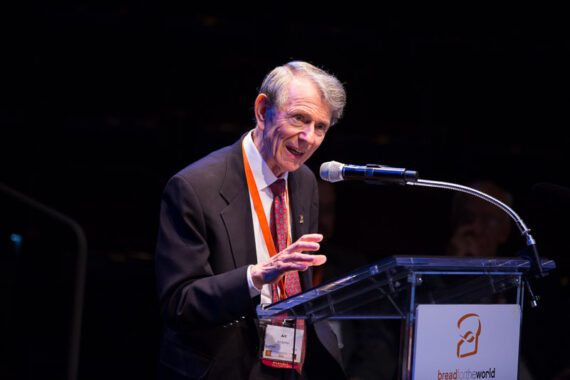By Marco Grimaldo
Immigration as a policy issue – and immigrants themselves – have been much debated during this year’s election season. Candidates of both major political parties, up and down the ballot, are squaring off, and the future of millions of men, women, and children without documentation hangs in the balance.
Bread for the World is committed to ending hunger by 2030, but we won’t get there if the next Congress and new president don’t find a way to agree on immigration reform. Hunger and immigration are inextricably linked in the U.S.
Nationally, 1 in 5 children – about 16 million – lives in a household where there is not always enough to eat. Of these, an estimated 4.5 million children live with at least one parent without documentation and are twice as likely to experience hunger and poverty. They are also less likely to benefit from anti-hunger programs like SNAP (formerly food stamps) and WIC.
Recently, Rev. Ray Rivera, founder of the New York-based Latino Pastoral Action Center (LPAC), spoke as part of a panel on immigration saying, “Immigration is an integral part of the mission of the church.”
He spoke about the more than 2,000 Bible verses that reference people who are poor and what he believes is God’s preferential option for them. Speaking to an audience of Latino Pentecostal pastors at the National Latino Evangelical Coalition’s Beyond Conference, Rivera cited data by the Pew Research Center that in the U.S., 35 percent of people attending Latino Pentecostal churches are undocumented and as many as 15 percent of pastors may also be undocumented. Both as a moral issue and a practical one, the Latino church must help fix the problem of immigration in the U.S.
Matthew 25:36-39 asks, “’…when was it that we saw you hungry and gave you food, or thirsty and gave you something to drink? And when was it that we saw you a stranger and welcomed you, or naked and gave you clothing? And when was it that we saw you sick or in prison and visited you?’”
For the immigrant, these are not abstract questions but expressions of very real ways in which they meet God daily. We as the reader of God’s word are challenged to see in each person we encounter the opportunity to greet God with love and compassion by ensuring that hungry people have enough to eat and immigrants are treated fairly.
Bread for the World offers elections resources that leaders and churches can use to raise questions about hunger and poverty when speaking with candidates for public office. Visit bread.org/vote to learn how you can raise questions and work with others in your community to ask candidates what they will do to end hunger and poverty.
Marco Grimaldo is senior associate for Latino engagement at Bread for the World.



